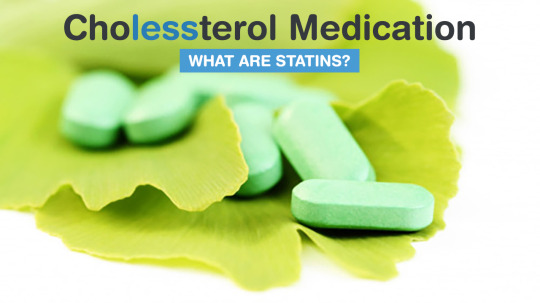
Heart disease is the No. 1 cause of death in the United States with one person dying every 40 seconds due to heart disease.
Too much cholesterol in the blood can form plaques between layers of artery walls, making it harder for your heart to circulate blood. Those plaques can also break open and cause blood clots. A clot in an artery that feeds the brain causes a stroke and a clot in an artery that feeds the heart causes a heart attack.
What do statins do?
Statins are medications that control your cholesterol, which can help prevent heart disease, heart attacks and stroke. Statins work in the liver to lower the amount of cholesterol in the blood. Statins are most effective at lowering the LDL (bad) cholesterol, but also have some effects on lowering triglycerides (blood fats) and raising HDL (good) cholesterol.
Who needs to take a statin?
Making healthy diet choices, increasing exercise, quitting tobacco products and maintaining a healthy weight are important first steps in lowering your high cholesterol. Depending on your overall risk, your health care provider may also prescribe medication along with healthy eating and regular exercise. Although several medications can be used, statins are the most commonly prescribed medication for lowering cholesterol and risk of heart disease or stroke.
New treatment guidelines
The American College of Cardiology and the American Heart Association recently came out with new guidelines that focus on evaluating the risk of heart attack and stroke and then recommending statin therapy based on that risk.
- High-Intensity Statin Therapy: Daily dose lowers LDL, on average, by about 50% or more
- Moderate-Intensity Statin Therapy: Daily dose lowers LDL, on average, by about 30% to 50%
- Low-Intensity Statin Therapy: Daily dose lowers LDL, on average, by 30% or less
Any decision about treatment should be the result of you working with your doctor to decide the best preventive strategy. Statins currently available in the U.S. include:
- Atorvastatin (Lipitor®)
- Fluvastatin (Lescol®)
- Lovastatin (Mevacor®, Altoprev™)
- Pravastatin (Pravachol®)
- Rosuvastatin Calcium (Crestor®)
- Simvastatin (Zocor®)
- Statins are also found in the combination medications Advicor®(lovastatin + niacin), Caduet® (atorvastatin + amlodipine), and Vytorin™ (simvastatin + ezetimibe).
How do I avoid side effects?
Most side effects are mild and generally go away as your body adjusts. Muscle problems are not common but can happen. People who are Vitamin D deficient may be more likely to have muscle problems so talk to your doctor to see if you need to take Vitamin D. Liver problems are rare, but your doctor may order regular liver function tests. Patients who are pregnant or who have active or chronic liver disease should not take statins. Talk to your doctor about the possible side effects of statins before starting the drug. Statins may also interact with some food or other drugs you are taking. Millions of people take statins to lower their cholesterol and their risk of heart disease and stroke and millions more probably should be taking these medications. Talk to your health care provider about your risk and the risks and potential benefits from statins.


